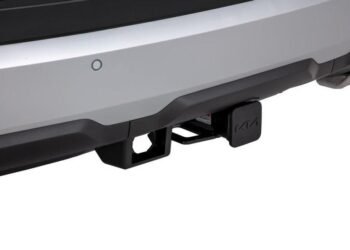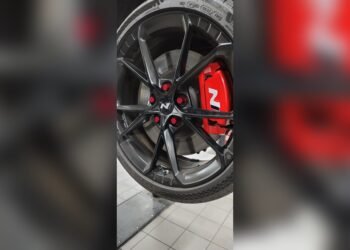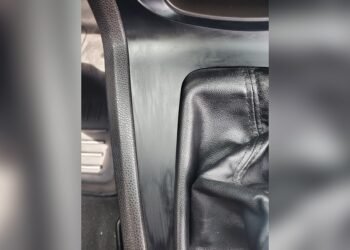Are you wondering if you can reuse your exhaust manifold gaskets and save a bit of money? It’s a question many car owners ask when they’re working on their vehicle’s exhaust system.
After all, these gaskets seem simple and sturdy, so why not reuse them? But here’s the catch: your exhaust manifold gaskets are designed to create a perfect seal only once. Trying to reuse them can lead to leaks, costly repairs, and headaches down the road.
You’ll discover when—and if—it’s ever safe to reuse these gaskets, why replacing them is usually the smarter choice, and how a small investment in new parts can save you big trouble later. Keep reading to protect your engine and your wallet.
Exhaust Gasket Basics
An exhaust gasket is a small but important part of a vehicle’s exhaust system. It sits between the exhaust manifold and the engine block. Its job is to seal the connection and prevent harmful gases from leaking out.
Exhaust gaskets face high temperatures and pressure. They must form a tight seal to keep the engine running smoothly. Understanding how these gaskets work helps to decide if reusing them is safe or not.
Gasket Function And Design
The main function of an exhaust gasket is to seal joints in the exhaust system. It stops exhaust gases from escaping before reaching the tailpipe. This prevents noise and harmful fumes from entering the vehicle.
Exhaust gaskets are designed to fit tightly between two metal parts. They compress when tightened to fill any gaps or irregularities. This compression creates a strong, leak-proof seal.
Designs vary, but most gaskets are thin and flat. Some have metal layers or special coatings to improve durability and heat resistance.
Materials Used In Exhaust Gaskets
Exhaust gaskets are made from materials that can handle heat and pressure. Common materials include graphite, metal, and composite fibers.
Graphite gaskets resist heat well and compress easily. Metal gaskets, often made of steel or copper, offer strong durability. Composite gaskets combine fibers with rubber or metal for flexibility and strength.
Material choice affects the gasket’s lifespan and sealing ability. High-quality materials help prevent leaks and extend gasket life under tough conditions.

Credit: www.reddit.com
Why Avoid Reusing Gaskets
Reusing exhaust manifold gaskets is a common question among car owners. These gaskets are crucial for sealing the connection between the exhaust manifold and the engine. Understanding why you should avoid reusing them helps protect your vehicle’s performance and safety. Old gaskets lose their effectiveness and can cause serious issues.
Single-use Compression
Exhaust manifold gaskets are made to compress only once. When installed, they conform tightly to the surfaces they seal. Removing and reinstalling causes the gasket to lose its shape. This weakens the seal and can lead to gaps. A new gasket ensures the correct compression and proper fit.
Loss Of Sealing Ability
After use, gaskets lose their sealing power. Heat and pressure cause them to harden or crack. Reusing old gaskets means they might not fill all the spaces perfectly. This loss in sealing ability allows exhaust gases to escape. A fresh gasket guarantees a tight, leak-free seal.
Risk Of Exhaust Leaks
Exhaust leaks can happen if a gasket is reused. Leaks reduce engine efficiency and increase harmful emissions. They also create loud noises and unpleasant smells. Exhaust gases escaping in the engine bay can harm components or pose health risks. Using a new gasket helps prevent these problems.
Cost Implications
Reusing gaskets may seem cheaper but can lead to bigger expenses. Exhaust leaks can cause engine damage and reduce fuel economy. Repairing these issues costs more than replacing a gasket. Investing in a new gasket saves money by avoiding future repairs and maintaining engine health.
Situations To Consider Reuse
Reuse of exhaust manifold gaskets is rare but possible in certain cases. These gaskets seal the gap between the exhaust manifold and the engine. They endure heat and pressure daily. Normally, replacing gaskets is best to avoid leaks and damage. Yet, some situations allow reuse without immediate failure. Knowing when to consider reuse can save time and money.
Emergency Repairs
In urgent cases, reuse may be necessary. When no new gasket is available, a careful reuse can temporarily stop leaks. Inspect the gasket for cracks or heavy damage first. If it looks intact and undistorted, reuse might work short-term. Tighten bolts evenly to avoid warping the gasket. Plan to replace the gasket properly as soon as possible. This keeps the engine running without major damage in emergencies.
Metallic Gaskets And Sealant Techniques
Metallic exhaust gaskets differ from traditional ones. They are made from durable metal layers and can sometimes be reused. These gaskets resist heat and pressure better, keeping their shape after removal. Using high-temperature sealants can improve the seal during reuse. Clean the gasket and flange surfaces well before reinstalling. Apply a thin layer of sealant to fill minor gaps. This method helps maintain a tight seal and prevent leaks after reuse.

Credit: www.reddit.com
Signs Of Gasket Wear
Exhaust manifold gaskets play a key role in sealing the joint between the manifold and the engine. Over time, these gaskets wear out due to heat and pressure. Recognizing signs of gasket wear helps avoid costly engine damage. Early detection means timely replacement or repair.
Wear signs can be subtle or clear. Checking gaskets regularly keeps the exhaust system running smoothly. It also prevents harmful leaks that affect vehicle performance and safety.
Visual Inspection Tips
Start by looking at the gasket surface. Check for cracks, breaks, or hard spots. Gaskets should be flexible, not brittle. Look for soot or black marks around the edges. These marks show where exhaust gases may be escaping.
Inspect the mounting bolts and flange area. Loose or rusted bolts can damage the gasket seal. Clean the flange surface before reinstalling a gasket. Any debris or rust reduces gasket effectiveness.
Common Symptoms Of Leaks
Listen for unusual noises near the manifold. A ticking or tapping sound often signals a leak. Exhaust fumes may be noticeable inside the engine bay or cabin. This can be dangerous and must be fixed immediately.
Check for a drop in engine performance. Exhaust leaks affect fuel efficiency and power. Also, watch for a strong smell of exhaust gases around the vehicle. These symptoms point to gasket failure and the need for inspection.
Safe Practices For Gasket Replacement
Replacing exhaust manifold gaskets requires care and attention. These gaskets seal the connection between the manifold and engine. A poor seal can cause leaks and engine problems. Follow safe practices to ensure a proper replacement. This helps maintain engine performance and safety.
Proper Removal Techniques
Start by letting the engine cool completely. This prevents burns and damage to parts. Use the correct tools to loosen bolts slowly. Avoid forcing or twisting the gasket to prevent damage. Clean the surface gently to remove old gasket material. Use a scraper or brush, but do not scratch the metal. Inspect the manifold and flange for cracks or warping before installing a new gasket.
Choosing The Right Replacement
Select a gasket that matches your vehicle model exactly. Use OEM or high-quality aftermarket gaskets for best results. Check the material type; metal or composite gaskets suit different engines. Avoid reusing old gaskets as they lose sealing ability. New gaskets ensure a tight, leak-free fit and longer durability. Confirm the gasket thickness matches the original to maintain proper clearance.
Installation Tips For A Leak-free Seal
Place the gasket carefully on a clean surface. Align it correctly with bolt holes and ports. Tighten bolts in a crisscross pattern to distribute pressure evenly. Use a torque wrench and follow the manufacturer’s torque specs. Avoid over-tightening, which can crush the gasket and cause leaks. Double-check the gasket position before final tightening. After installation, run the engine and inspect for leaks or unusual noises.

Credit: www.reddit.com
Cost-saving Strategies
Saving money on exhaust manifold gasket replacement is possible with smart strategies. Proper choices and care help extend gasket life and reduce repair costs. These cost-saving methods keep your vehicle running smoothly without frequent gasket changes.
Buying Quality Gaskets Economically
Choose gaskets made from durable materials for longer use. Avoid very cheap options that may fail quickly. Shop from trusted suppliers offering good deals or bulk discounts. Compare prices online to find the best balance of cost and quality. Investing a bit more upfront saves money on repeated replacements.
Preventive Maintenance To Extend Gasket Life
Keep engine parts clean to prevent gasket damage. Check exhaust manifold bolts regularly for proper tightness. Avoid overheating the engine, as high heat wears out gaskets faster. Replace worn or damaged parts early to protect the gasket. Regular maintenance reduces the chance of leaks and costly repairs.
Frequently Asked Questions
Are Manifold Gaskets Reusable?
Manifold gaskets are generally not reusable. They compress once and lose sealing ability after removal. Reusing increases leak risk. Replace gaskets to ensure a secure, leak-free seal and avoid costly repairs.
Do Exhaust Manifold Gaskets Need To Be Replaced?
Exhaust manifold gaskets should be replaced after removal. Reusing reduces sealing ability and risks dangerous exhaust leaks. Replacement ensures a reliable, leak-free seal and saves time and cost in the long run.
Are Exhaust Gaskets Single Use?
Exhaust gaskets are typically single-use. Reusing them reduces sealing ability and increases leak risk. Always replace for a proper seal.
How Many Times Can You Reuse Header Gaskets?
You should not reuse header gaskets. They compress once and lose sealing ability after removal. Reusing risks leaks and costly repairs. Always replace gaskets to ensure a proper, leak-free seal.
Can You Reuse Exhaust Manifold Gaskets Safely?
Exhaust manifold gaskets usually should not be reused because they lose sealing ability after removal.
Conclusion
Reusing exhaust manifold gaskets can lead to leaks and engine issues. These gaskets compress to fit perfectly once. Re-compressing them weakens their seal and increases risk of failure. New gaskets cost little and ensure a proper seal. Saving money now might cause costly repairs later.
Always inspect gaskets carefully before deciding to reuse. Proper gasket replacement helps maintain engine performance and safety. Choose new gaskets for a reliable, long-lasting repair.

















